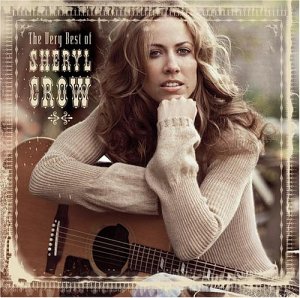
- Format: MP3

Sheryl Crow was one of the key artists of the '90s, if the yardstick is capturing the sound and spirit of the time. A former backing vocalist for Michael Jackson — an association that lead to dubious tabloid headlines romantically linking her with the singer long before she was a star in her own right — she rode the first great wave of Women in Rock hysteria of the alt-rock explosion to fame with her first album, Tuesday Night Music Club, in 1994, settling into the weary aftermath of the post-grunge years with her brilliant eponymous second album in 1996, riding out the end years of the Clinton administration with the measured, mature Globe Sessions in 1998, and then defying the gloom of the W years by soaking up the sun on 2002's C'mon C'mon . It was a body of work that defined the times without getting too much critical respect (similar to Billy Joel in that respect, even if the music is totally dissimilar), and while her albums were always good and occasionally terrific, she made her greatest mark as a singles artist on the ever-morphing world of '90s radio. Released in late 2003, The Very Best of Sheryl Crow is the first attempt to summarize those years, and it does a pretty good job of it. All of the big hits are here: the deceptively effervescent "All I Wanna Do," the defiantly effervescent "Soak Up the Sun," the sweet resignation of "My Favorite Mistake," the giddy "Everyday Is a Winding Road," the evocative "Leaving Las Vegas," the sexily exhausted "If It Makes You Happy," the soccer-mom anthem "A Change Would Do You Good," the absurd escapism of the heavily Pro Tooled "Steve McQueen," and best of all, "Picture," a superb country duet with Kid Rock previously unavailable on one of Crow's albums. If the collection seems to be missing songs, it's because it is. Like most contemporary hits collection, it chooses to highlight album tracks ("Home," "The Difficult Kind," "I Shall Believe") in favor of minor hits — a tactic that is highly debatable, since those album tracks may be favorites of the artist or the concert-attending audience yet those who follow an artist via the radio will find many songs absent, some more noteworthy than others. In this case, "Run Baby Run," "Can't Cry Anymore," "D'yer Mak'er," "Anything but Down," "Sweet Child O Mine," and "C'Mon C'Mon" are all missing in action, with "Can't Cry Anymore," "Anything but Down," and maybe "Run Baby Run" being truly missed (the covers of Zeppelin and Guns n' Roses being the byproduct of the '90s pop climate where major and minor artists alike had more contributions to soundtracks, benefit albums, and tribute records than could be counted; some hit the charts, as in this case, but most didn't). This is a minor quibble, since it effects the general texture and feel of the album more than the overall effect, but it's enough to keep it from being the unqualified home run that it should have been. Even so, The Very Best of Sheryl Crow does capture her biggest and best songs, adding two good new songs to the mix (a cover of Cat Stevens ' "The First Cut Is the Deepest," which uses Rod Stewart 's version as the starting point, and the solid new song "Light in Your Eyes"), that in turn capture the feel of the '90s by proxy.